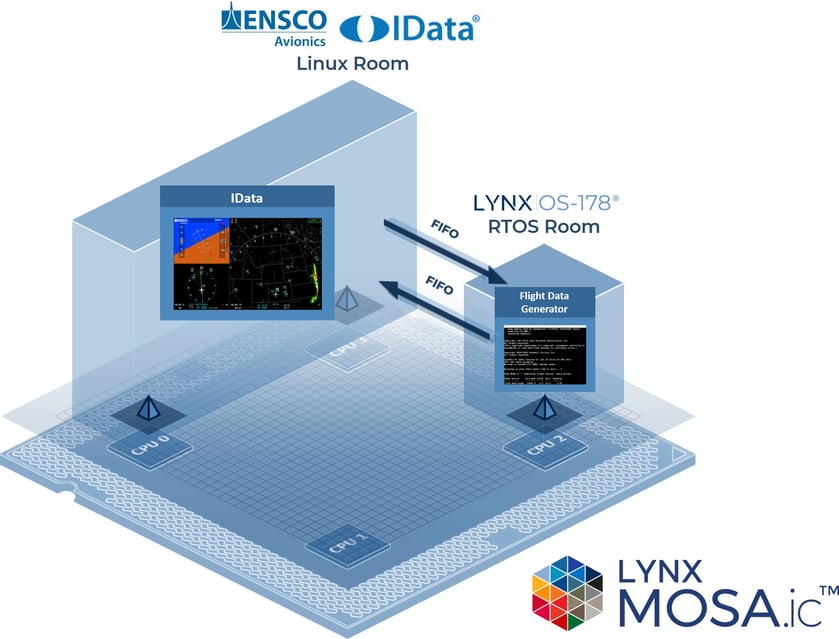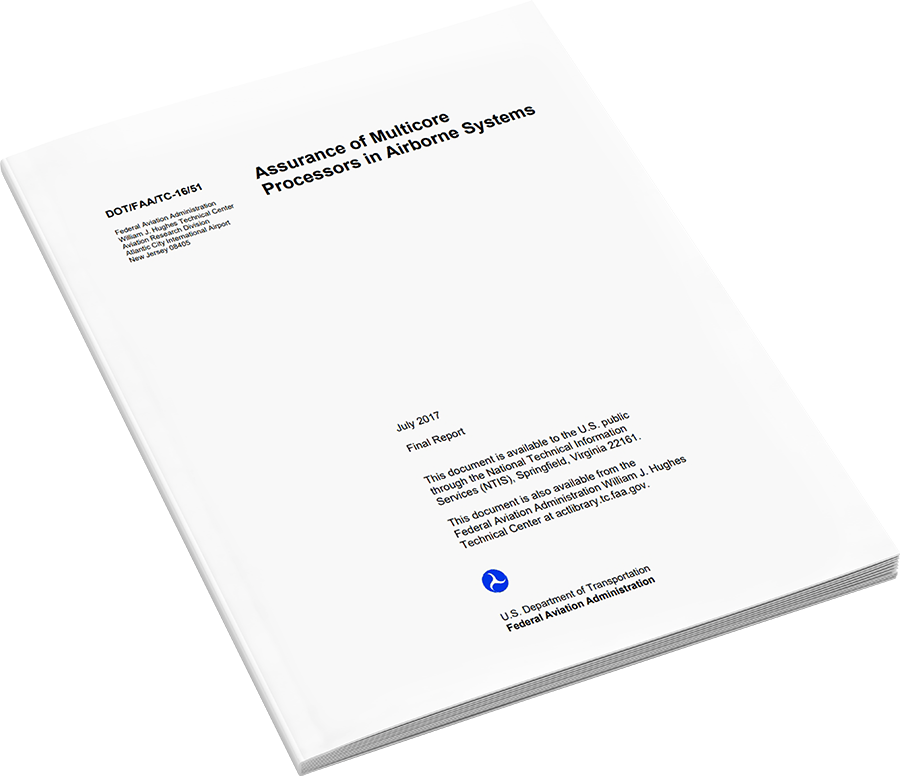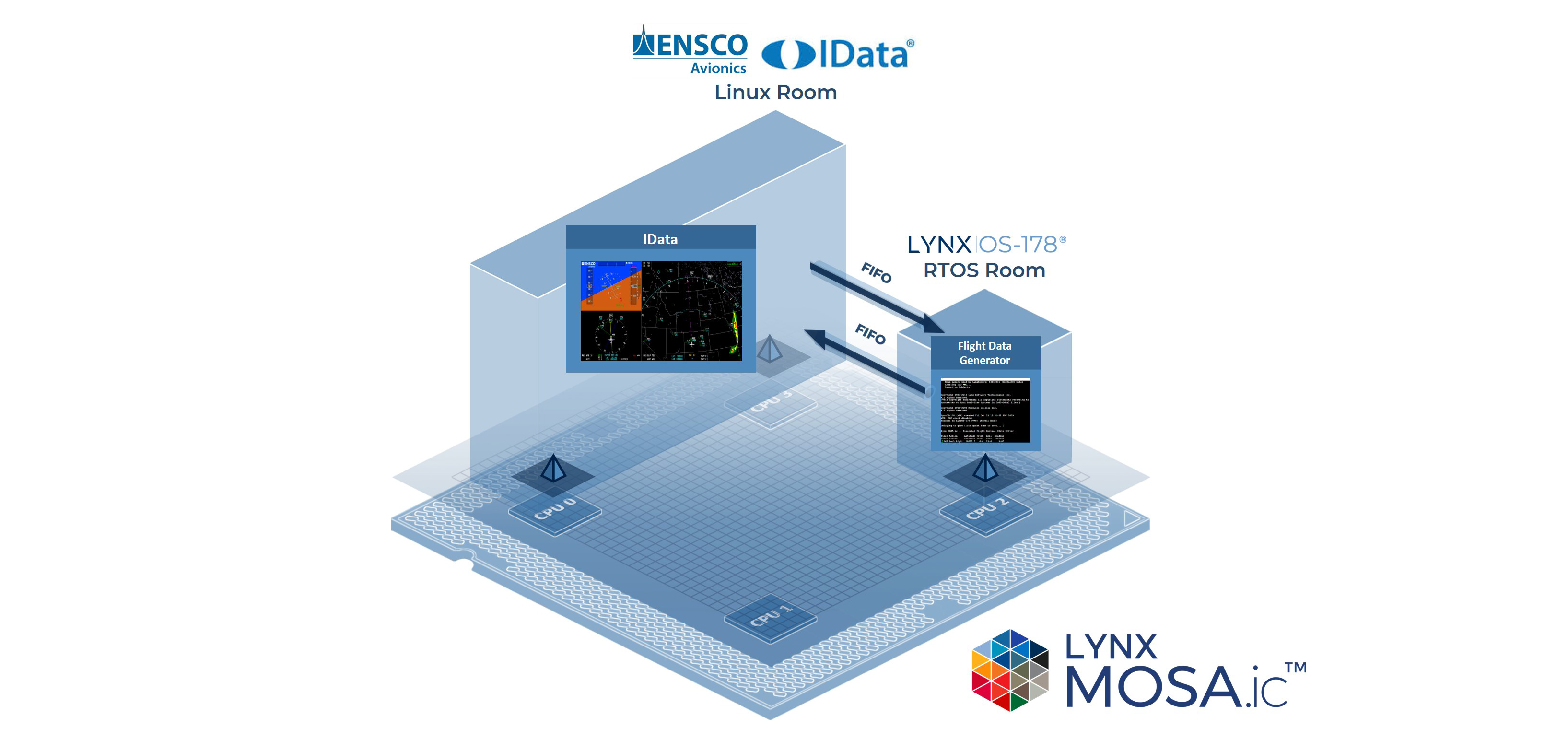RTOS and Linux - Their Evolving Roles in Aerospace and Defense
In the critical and demanding world of aerospace and defense, selecting the appropriate software components is not just a technical decision; it's a...
3 min read
![]() Dan Westerberg | Senior Systems Engineer
:
Nov 17, 2019 7:53:00 AM
Dan Westerberg | Senior Systems Engineer
:
Nov 17, 2019 7:53:00 AM
The most formidable challenges of modern avionics development programs are often centered around the safety certification process and the corresponding requirements and costs. Equally as challenging to any large development program are the design and implementation phases where the software application comes to life as it is realized on the target system environment. These phases can be compromised by
The challenges listed above can be addressed with a robust architectural approach that minimizes overall system complexity by:
This week at DSEI Japan 2019, Lynx Software Technologies and Ad-Sol Nissin Corp., our long-time strategic partner and distributor, are demonstrating how the LYNX MOSA.ic™ modular development & integration framework addresses these challenges through its Modular Open System Approach (MOSA) for simplifying the development and integration of complex, safety-critical avionics systems.
LYNX MOSA.ic™ and its Architectural Configuration Policy provides the ability to strictly partition and assign the resources of a CPU and surrounding embedded system to independent guest operating environments that reside in uniquely isolated virtual machines called ‘rooms’. Guests are provided direct, protected access to assigned hardware resources, such as a GPU or NIC, and have sole responsibility for the driver-level hardware control of the assigned resource.
The Architectural Configuration Policy also provides the ability to specify protected, inter-partition communication (IPC) shared memory pathways between guests, called ‘passageways’. Each Guest represents an independent software component inter-working with other guests in a distributed, modular software architecture.

Using LYNX MOSA.ic™ to modularize an avionics application into independent software components, provides the following benefits:
In collaboration with our partner ENSCO Avionics, Inc., the demonstration on display in our booth at DSEI Japan 2019 (see diagram below) highlights this modular approach to avionics design using LYNX MOSA.ic™ to host two guest environments:

LynxOS-178® is a native POSIX® hard real-time partitioning operating system developed and certified to FAA DO-178C DAL A safety standards. In the displayed demonstration, the LynxOS-178® guest instance is running a POSIX®-based application that is generating simulated flight data and sending it to the IData® guest and avionics displays via a shared memory inter-partition communication FIFO.
This modular approach to the software architecture highlights the ability to develop safety-critical, high assurance applications in an independent, isolated processing domain that is not reliant upon or impacted by applications that may not have the same high-assurance requirements.
The ENSCO IData® Tool Suite allows for the rapid development of complex avionics display and mapping solutions, using their “Data Driven Architecture and Design Once, Deploy to Many” philosophy. For the demonstration on display, a Linux runtime environment was selected as a readily available, robust development environment for developing the IData® display application.
Once development is complete, the IData® Tool Suite makes it straight-forward to re-target the application, without requiring design changes, into a suitable, safety-certifiable environment, such as Lynx’s LynxOS-178® certified RTOS. With LYNX MOSA.ic™, changing the IData® underlying runtime guest from a Linux environment to an RTOS environment is a simple matter of updating the LYNX MOSA.ic™ Architectural Configuration Policy, recompiling the design, and deploying the updated software image to the target system.
Come visit us at Stand A194 at DSEI Japan 2019 for more information on how the LYNX MOSA.ic™ modular development & integration framework and the ENSCO Avionics IData® Tool Suite can address the safety-critical, high assurance requirements of your next project. If you are unable to attend DSEI Japan 2019, please contact us at inside@lynx.com or simply click the Get Started button below. We’d love to talk to you about your project and possibly schedule a free whiteboarding session.

In the critical and demanding world of aerospace and defense, selecting the appropriate software components is not just a technical decision; it's a...

I hadn't heard of "bottom up" avionics certification before I read FAA's TC-16/51. But now, looking back at it, I think the authors from Thales...

The most formidable challenges of modern avionics development programs are often centered around the safety certification process and the...